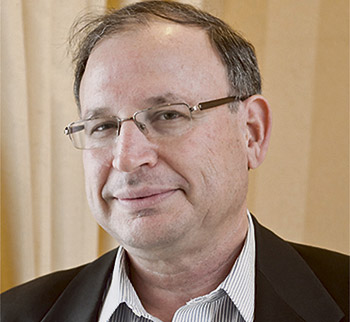Toronto’s Mount Sinai Hospital is the latest Canadian institution to forge ties with Israel in the form of a new exchange program for medical professionals specializing in intensive care medicine.
The Zvi Eizenman Canada-Israel Exchange Program between Meir Medical Center and Mount Sinai began last weekend with the arrival of Dr. Mirit Lahav, a graduate of Tel Aviv University’s Sackler School of Medicine and an anesthesiologist at Israel’s Meir Medical Center.
Meir hospital is affiliated with the Sackler School.
During her one-month stay in Toronto, Lahav will join the daily intensive care unit (ICU) rounds at Mount Sinai and will attend the department’s business meetings, safety and quality meetings, and research meetings, according to Moshe Eizenman, a researcher and scientist with the University Health Network, and one of the sponsors of the exchange program named in honour of his late father, who passed away in Meir’s ICU.
Lahav could not be reached for comment in time for deadline.
The heads of the Meir hospital ICU department decided earlier this year that an exchange program with a major Canadian institution was a “high priority,” Eizenman said.
“The aim of this program is to provide specialists in the ICU of the Meir Medical Center opportunities to interact with foreign specialists and different cultures while being exposed to different patient loads and treatment approaches,” he said in a statement. “In addition to clinical exposure, the exchange program will provide opportunities for joint research projects, ICU education and simulation-teaching, and quality assurance.”
Brian Fredman, chair of the department of anesthesiology, critical care and pain management at Meir hospital, said he is excited by this joint initiative.
“There is no doubt that education is the cornerstone to successful patient management,” he said. “Training medical staff is a long process that requires not only time and dedication but also opportunities to see and be part of different systems and cutting-edge ideas. The exchange program provides just that.”
When approached about the exchange, Mount Sinai’s chief clinical officer, Dr. Toim Stewart, said he thought it was a “fantastic idea.”
“We would welcome the exchange and hopefully will reciprocate in the future,” Stewart added.
Lahav will also participate in simulation training sessions and spend time with Mount Sinai’s critical care response team.
Meir Medical Center is one of Israel’s most rapidly expanding care facilities, and is currently working on construction of a new 25,000-square-foot orthopedic pavilion.
The centre is currently roughly the size of Toronto’s Sunnybrook Health Sciences Centre campus.
To build the new pavilion, Meir needs to raise $60 million over the next three years.
The teaching hospital, located in Kfar Saba, just north of Tel Aviv, serves nearly one million people, Arabs and Jews, each year.
Meir is known for its advances in the fields of cancer research, diabetes, geriatric care, pediatric care, head and neck surgery and orthopedic surgery.
It currently has ongoing projects with the Hospital for Sick Children and the University of Western Ontario.
Canadians are also some of the most passionate supporters and strongest donors to Meir hospital, with some $2 million raised for the centre through its Canadian Friends of Meir Medical Centre charity since 2010.
The charity will hold its annual Medal of Merit awards ceremony on April 28 at the Kehila Centre, 7026 Bathurst St., with proceeds going to support the hospital many endeavours.
For more information, visit www.meirfriends.com.
